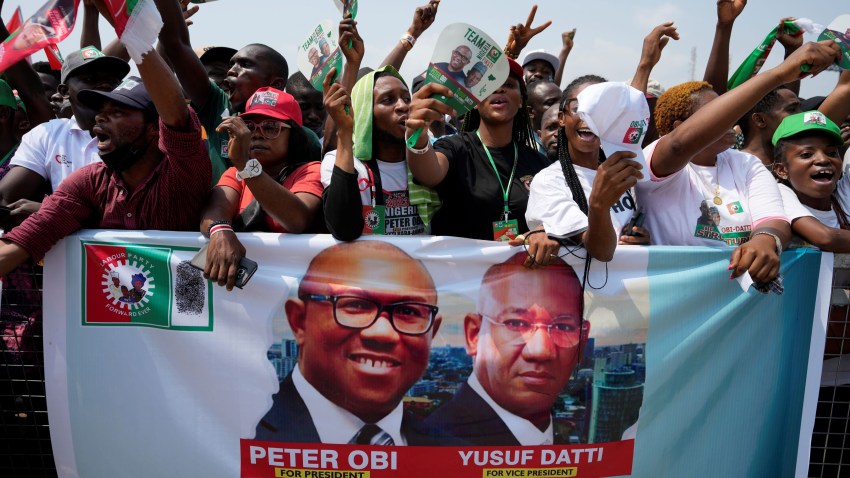ABUJA, Nigeria—Voters in Nigeria will cast their ballots at more than 176,000 polling stations across the country in the 2023 presidential election. Eighteen candidates are running to succeed outgoing President Muhammadu Buhari as the leader of Africa’s most populous country and largest economy. Earlier this week, in a ceremony attended by Buhari as well as other domestic and foreign dignitaries, they all signed a national peace accord pledging to ensure the conduct of a peaceful election and to accept its outcome.
Buhari will not be in Abuja on Election Day, having departed yesterday for his home state of Katsina, where he will cast his vote. Buhari pledged to oversee the conduct of a free, fair and credible election as one final parting gift to Nigerians on his way out of office. But few voters have fond memories of his presidency, which ends amid worsening living conditions in the country.
The top contenders to succeed him include Bola Tinubu, a former governor of Lagos and a chieftain of Buhari’s ruling All Progressives Congress, or APC; former Vice President Atiku Abubakar of the Peoples Democratic Party, or PDP, who is seeking the presidency for the sixth time in 30 years; and Peter Obi, a former governor of Anambra and the PDP’s vice-presidential nominee in the 2019 presidential election, who is running this year as the Labour Party’s candidate. Rabiu Musa Kwankwaso, a former governor of the vote-rich Kano who previously served as defense minister and senator, is also in the race. Though not considered a frontrunner, Kwankwaso is viewed as a spoiler who could take votes away from other candidates, particularly in Nigeria’s northwest, where he is expected to do well.

